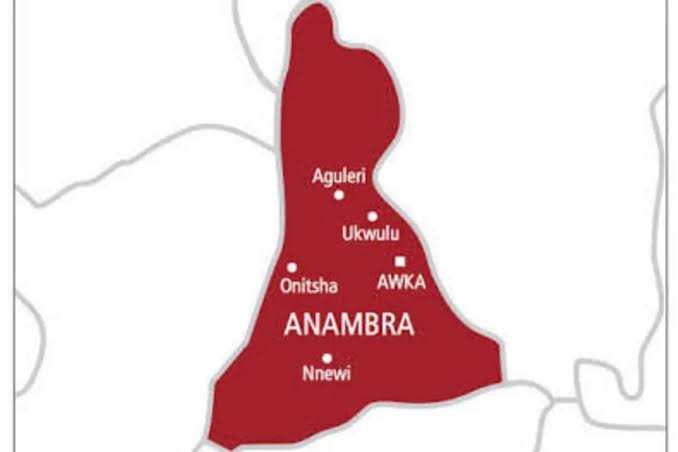News
While the world holds her breath for Trump’s Iran war moves, FBI restrategize

As President Trump deliberates whether to authorize U.S. airstrikes on Iran’s nuclear infrastructure, federal law enforcement, as of Friday, June 20, 2025, is intensifying efforts to identify and neutralize Iran-affiliated operatives within the United States.
This is according to sources familiar with the matter who disclosed this to CBS News.
Heightened Domestic Surveillance
Since Israel’s sweeping Operation Rising Lion began on June 13, targeting multiple Iranian nuclear and military sites, the FBI, led by Director Kash Patel, has ramped up surveillance of potential sleeper cells linked to Hezbollah.
Hezbollah is a U.S.-designated terrorist group backed by Iran
Authorities are especially concerned that these dormant networks could be activated in response to U.S. intervention.
History of Threats and Plots
The stakes are high. Following the 2020 U.S. drone strike that killed Iranian General Qasem Soleimani, federal agencies remained on red alert for retaliatory threats on American soil.
Late last year, prosecutors charged an Islamic Revolutionary Guard Corps (IRGC) operative and two Americans over a plot to surveil and potentially kill Iranian dissidents and critics in the U.S.
The charges suggest senior IRGC guidance—and even assassinations of U.S. officials, including President Trump—were on the table .
In 2011, Iran-linked operatives attempted to hire assassins to kill the Saudi ambassador on U.S. soil, revealing a longstanding pattern of Tehran-directed attacks
Hezbollah’s Secret Network: Unit 910
At the core of this threat is Hezbollah’s covert “Unit 910”, also known as the Islamic Jihad Organization.
Specializing in setting up sleeper cells outside Lebanon, including in the U.S., Unit 910 has carried out surveillance of airports, military installations, and Israeli and Western targets
In a 2017 FBI case, Lebanese-Americans Ali Kourani and Samer el Debek were convicted for carrying out surveillance in major U.S. cities on Hezbollah’s behalf.
Kourani openly acknowledged to agents that he was a “sleeper cell” operative working for Iran-backed Hezbollah
Unit 910 is not a relic.
It is operating in plain sight.
Open-source intelligence shows that Hezbollah continues to cultivate sleeper networks in North America, Europe, and Asia.
These cells are reportedly trained in espionage, weapons acquisition, and even the storage of explosives disguised as innocuous items
The Activation Risk
With tensions escalating, experts fear Iran may unleash asymmetric responses, including activating sleeper cells in the U.S. or elsewhere in the West
While short on missiles themselves, Iran’s leadership might see domestic terror as a means to retaliate for hits on its nuclear facilities
Such fears prompted the FBI to convene all 56 regional offices in a high-stakes video briefing led by the Counterterrorism Division.
Field agents were told to track suspicious surveillance at military bases, airports, and major infrastructure, pulling extra shifts, and reallocating agency resources.
FBI Director Kash Patel at the Helm
Director Kash Patel, a close Trump ally and former National Security Council official, is personally overseeing the expanded surveillance initiative.
Notably, he was previously targeted in a cyber-espionage campaign believed to involve Iranian hackers
U.S. Domestic Counterterrorism Measures
Beyond the FBI’s internal ramp-up, the Department of Homeland Security and federal prosecutors are deploying new tools:
Targeting front organizations, charities, and community groups with reported ties to Iran.
Monitoring unusual financial flows, communications, and dormant real estate assets.
Executing sting operations and seeking cooperation with state-level and international intelligence partners.
The Justice Department emphasizes that these sleeper networks are not hypothetical.
Multiple plots, some thwarted, some active, have been documented.
Scenarios include cyber sabotage, attempted assassinations, and infrastructure attacks
Why Now Matters
President’s Pending Decision
Trump must decide within two weeks whether to strike complementing Israel’s campaign. If U.S. forces are used, it’s likely to mobilize these sleeper cells.
Completing the U.S. Threat Arsenal
The U.S. holds exclusive capability to target deep-dwelling sites like the Fordow enrichment plant, making any military move uniquely provocative
Public Warning Campaign
Homeland Security has issued alerts urging businesses and infrastructure operators to red-flag suspicious behavior—reflecting a degree of public threat preparedness.
Bottom Line
The FBI’s surveillance sweep reflects a deep-seated concern: Tehran and its proxies have spied, plotted, and attempted violence on American soil before, and they remain capable of doing so again.
Whether Trump orders strikes or not, the country’s domestic security apparatus reportedly stands at the ready, working overtime to stay one step ahead of covert threats rooted halfway across the world, but with American consequences.
News
2027: Why Tinubu will still win with Muslim-Muslim ticket — Yerima

A chieftain of the All Progressives Congress (APC) and former federal lawmaker, Haruna Yerima, has declared that President Bola Tinubu would secure victory in the 2027 presidential election if he retains Vice President Kashim Shettima as his running mate.
Yerima made the statement on Saturday in Abuja while responding to calls by the Northern Ethnic Nationality Forum urging President Tinubu to replace Mr Shettima and avoid fielding a Muslim-Muslim ticket.
According to the forum, picking a Christian from Plateau, Benue, or Taraba State would help counter fears of an alleged Islamisation agenda.
The group warned that keeping the current ticket could give opposition parties an easy campaign tool.
But Yerima in the statement, dismissed these concerns.
“The claim that the APC may lose the 2027 presidential elections if President Bola Tinubu adopts Vice President Kashim Shettima as his running mate is insane and unfounded,” he said.
He described suggestions that an Atiku Abubakar–Peter Obi alliance could defeat Tinubu and Shettima as “a jaundiced and amateur political permutation without any empirical backing.”
“We dismiss this statement by one Dominic Alancha of a faceless organisation, Northern Ethnic Nationality Forum, who urged President Tinubu to drop Sen. Shettima and avoid repeating the Muslim-Muslim ticket,” he added.
According to him, fears of an Islamisation agenda have already been addressed by the administration’s policies of inclusion.
“In the last two years of President Bola Tinubu’s presidency, all doubting Thomases that the APC administration is not tilted to any religious group. It is appalling why that faceless group is trying to reincarnate a forgotten issue,” he said.
Yerima insisted that the choice of Mr Shettima was carefully considered and cannot be imposed upon.
“Vice President Kashim Shettima was chosen by President Bola Tinubu after thorough consideration of various factors. Any attempt to impose a running mate on President Tinubu would not only backfire but would be met by outright rejection by the president himself.
“President Tinubu is not a political neophyte that some dubious politicians would hide under a mushroom ethnic group to push for an unsaleable agenda.”
Yerima warned against injecting religion into politics.“It is puzzling that some people are driving faith-based sentiments on issues that are strictly loyalty and competence-based,” he said, praising Mr Shettima’s performance.
“Sen. Shettima has been diligently fulfilling the roles assigned to him by his principal with all diligence, competence, and dedication”.
News
VIDEO: Man Brutally Beaten for Killing Sacred Snake in Anambra

The Deputy Chief Whip of the Senate, Senator Peter Onyekachi Nwebonyi, has strongly condemned the alleged harassment and humiliation of an Ebonyi man, Mr. Michael Eje, who was reportedly brutalized by youths in Nkpor, Anambra State, for killing a snake regarded as sacred in the community.
A disturbing video that surfaced on social media showed Mr. Eje being paraded through the streets by angry youths who accused him of desecrating their tradition.
He was ridiculed, beaten, and made to chant dirges for the snake before being fined ₦50,000.
Reacting to the incident, Senator Nwebonyi, who represents Ebonyi North Senatorial District, described the act as “barbaric, dehumanizing, and unacceptable in a modern society.”
He said it was shocking that in the 21st century, an individual could be subjected to such humiliation for killing a snake in self-defense.
“I wonder why a man should be subjected to such a harrowing experience for killing a snake that posed a threat to him,” Nwebonyi said.
He stressed that no cultural practice should supersede a person’s right to life and safety.
The lawmaker called on the Anambra State Government, led by Governor Charles Chukwuma Soludo, to immediately condemn the act and ensure that such incidents do not repeat themselves.
He noted that the same urgency with which the governor handled the recent renaming of Abakaliki Street in Awka should be applied to protecting the dignity of individuals, regardless of their state of origin.
Senator Nwebonyi also directed the Chairman of the Ebonyi State Indigenes Association in Anambra, Chief Moses Ofoke, to reach out to the victim and his family to document his experience and ensure he receives the necessary support.
Speaking about his ordeal, Mr. Eje, a native of Onueke in Ezza South Local Government Area of Ebonyi State, said he was working at a construction site when he encountered the snake hidden beneath a pile of old blocks.
According to him, the snake lunged at him, forcing him to kill it in self-defense.
He explained that he had no prior knowledge that killing a snake was considered taboo in Nkpor, and no one had ever informed him of such a custom.
“I only acted out of fear and instinct. I never knew there was any tradition against killing snakes here,” he said.
Mr. Eje narrated that after the killing, some youths accosted him, dragged him through the streets, and subjected him to beatings while mocking him.
He said he was later forced to perform rituals for the snake before being fined.
His wife, who also spoke, described the experience as traumatic and humiliating, noting that the family was still struggling to recover from the psychological impact.
The senator’s intervention has given hope to the victim and his family.
Mr. Eje expressed gratitude for Nwebonyi’s swift response and called on the authorities to ensure justice is served.
“What I went through is something I will never forget in my life. I thank the senator for standing with me. I just want justice,” he said.
The incident has sparked mixed reactions on social media, with many Nigerians questioning the relevance of such practices in today’s society.
While some argued that cultural values must be respected, others insisted that human life and dignity should take precedence over any tradition.
Civil rights groups have also weighed in, urging the Anambra State Government to take concrete steps to protect non-indigenes from cultural practices that may endanger their rights.
They stressed that Nigeria’s diversity should not become a tool for victimization but a source of unity and mutual respect.
As of press time, the Anambra State Government had yet to issue an official response to the senator’s call.
However, stakeholders expect Governor Soludo to step in swiftly to address the matter and reassure the public that such treatment of individuals will not be tolerated.
For Senator Nwebonyi, the issue goes beyond one man’s ordeal.
He insists it is about upholding human dignity and ensuring that no Nigerian is discriminated against or humiliated simply for coming from another state.
Watch the video below.
News
2027: El-Rufai Leads Kaduna SDP to Join Forces with ADC Coalition

A major political shift has unfolded in Kaduna State as former governor, Malam Nasir El-Rufai, spearheaded the merger of the entire structure of the Social Democratic Party (SDP) with the African Democratic Congress (ADC).
The development, which signals a significant realignment ahead of Nigeria’s next political cycle, was announced during a coalition meeting held in Kaduna on Saturday, August 23, 2025.
The gathering brought together influential leaders, party executives, and stakeholders drawn from diverse political platforms.
In a communiqué issued after the meeting and signed by the Kaduna State Coalition Publicity Secretary, Hon. Darius Kurah, El-Rufai was identified as the key figure driving the coalition efforts.
He chaired the meeting, which was attended by ADC leaders, former commissioners, SDP executives, and several prominent figures from the state’s political class.
Among the attendees were Hon. Ja’afar Mohammed Sani, ADC Vice Chairman (North West); Elder Patrick Ambut, ADC Kaduna State Chairman; and Mallam Bashir Saidu, a leading ADC strategist in the state.
Addressing the gathering, El-Rufai described the merger as a decisive step toward building a credible political alternative in Kaduna.
He stressed that the coalition’s central goal is unity, with a strong emphasis on inclusive governance and people-centered development.
“Our mission is clear: to strengthen progressive leadership in Kaduna and Nigeria by rallying around shared ideals and ensuring that politics serves the people, not personal interests,” El-Rufai said.
Ja’afar Mohammed Sani, ADC Vice Chairman for the North West, praised the SDP leadership for what he called a “bold and courageous decision.”
He described the merger as a new dawn for credible leadership in Kaduna and a signal that opposition politics is reawakening.
Similarly, Elder Patrick Ambut welcomed the SDP members into the ADC fold, assuring them of full integration into existing party structures.
He noted that the coalition was not just about structures merging but about harmonizing ideologies for the collective good of the people.
Mallam Bashir Saidu reinforced this view, stressing that the merger represented “a convergence of visions and principles dedicated to building a future where governance is truly accountable.”
As part of the resolutions adopted at the meeting, the ADC National Working Committee (NWC) was tasked with setting up a Membership Registration Committee.
This committee will work closely with the Kaduna State chapter, alongside local government and ward units, to begin new membership registration while revalidating existing members.
According to the communiqué, this grassroots exercise is expected to strengthen the coalition’s reach, consolidate its base, and position it strategically ahead of future elections.
The meeting ended on a hopeful note, with stakeholders pledging commitment to building a formidable front capable of challenging the dominance of established parties in the state.
Political observers say El-Rufai’s move has reshaped Kaduna’s political landscape.
By leading the SDP into a merger with the ADC, the former governor has positioned himself once again as a central figure in the state’s opposition politics.
The coalition is seen as part of a broader strategy by opposition forces to rally around credible alternatives and build momentum ahead of 2027.
With grassroots mobilization already on the agenda, analysts suggest the ADC-SDP merger could become a significant force, particularly in northern Nigeria where El-Rufai still commands influence.
For now, Kaduna’s political terrain has shifted, and the coming months will determine whether this coalition translates into electoral strength or fades into another short-lived alliance.
News
Oral sex by couple is not sin — Apostle Johnson Suleman

The General Overseer of Omega Fire Ministries International, Apostle Johnson Suleman, has said oral sex between a husband and wife is not sinful.
He made the comment during a question-and-answer session at a church service.
Though, it is unclear when the service took place, but a video of his remarks surfaced on YouTube on 22 August 2025.
During the session, a woman, believed to be in her 50s asked, “Daddy, Sir, is oral sex a sin?” Mr Suleman, popularly called “Daddy” by members of the congregation, chuckled before responding.
“Should I answer from the Bible?” he asked, as the audience urged him to speak. “Anything you do with your wife indoors is not a sin. So long as she’s your wife and both of you agree to do it, (it is not a sin),” he said.
Some congregants murmured at his response, but Mr Suleman continued: “I can show you (from the Bible). When the Bible was talking about the wife of your youth, it was talking about ‘go within thy walls, let thy hands pass through her cisterns.’ What do you think the Bible was saying? So long as it is not fetish, a ritual, it is not diabolic, (it is not a sin).”
He also dismissed claims that oral sex is inappropriate because the mouth is used to pray.
“Don’t you use the same mouth to gossip? Don’t you use the same mouth to tell lies?” he asked in Pidgin English.
Anticipating backlash, the preacher said he was unfazed. “Save your home, save your home,” he told worshippers, urging couples not to deny their spouse’s request for sex.
While Mr Suleman insisted the practice is permissible in marriage, health specialists have long cautioned against it.
Oral sex — also known as orogenital sex — involves using the mouth, lips or tongue to stimulate a partner’s genitals or anus.
Adegboyega Fawole, a gynaecologist at the University of Ilorin Teaching Hospital, warned in 2017 that it could expose people to Human Papilloma Virus (HPV) infections in the mouth, raising the risk of HPV-related oral cancers.
The virus is also linked to cervical cancer, genital warts and anal cancer.
Similarly, Bamidele Mutiu, a consultant microbiologist at the Lagos State University Teaching Hospital, explained in a 2021 interview that organisms causing sexually transmitted diseases survive in genital secretions and are not destroyed by saliva.
News
‘I’m Under Attack Over My Race and Ethnicity’ – Kemi Badenoch Cries Out

Conservative Party leader Kemi Badenoch has revealed the scale of racism and hostility she has faced since becoming the first black woman to lead the Tories.
In an interview with The Sunday Times, Badenoch admitted she did not expect the level of personal attacks she has endured online and within political circle.
“There’s a certain cadre of people who clearly can’t cope with the fact that I won this and I’m doing it,” she said.
“The level of personal attacks from anonymous people is hysterical.
Not just from MPs only two or three out of 120 but also online.
People used to talk about Trump derangement syndrome. I think there’s a Kemi derangement syndrome: ‘How could she possibly have done this?’.”
The 44-year-old politician, who was born in Wimbledon and raised in Nigeria before returning to the UK at 16, said much of the abuse has focused on her race and identity.
“On social media, there’s a lot of ethno-nationalism creeping up,” she noted.
“There are tropes around, ‘well, she couldn’t possibly have done this all by herself.’”
Badenoch rarely speaks at length about her race, often stressing that she sees Britain as a country where minorities thrive. She has previously argued that “Britain is not a racist country” and faced criticism for saying that white working-class boys struggle more than ethnic minorities on many social indicators.
“I always try to think of every possible explanation before I go to race and racism,” she told the paper.
“That is a healthy way to run a society. There will always be people who throw mud and hope it sticks.”
The Tory leader now faces a critical moment as she prepares for her first party conference speech.
With the Conservatives polling at just 17%, she is under pressure to unite her party and fend off speculation of a leadership challenge from her shadow justice secretary, Robert Jenrick.
On rumours Jenrick could soon replace her, Badenoch dismissed the claims as “wishful thinking.”
“There will always be sore losers—our candidate didn’t win, and so on,” she said.
“When I hear those things, I can tell those people are not focused on the country at all. Many of them think this is a game. But the lives of people in this country aren’t a game.”
-

 Celebrity/Entertainment3 days ago
Celebrity/Entertainment3 days agoHow Nigerian TikToker Geh Geh Made ₦45 Million in One Night
-

 Featured6 days ago
Featured6 days agoYour Attacks on Peter Obi Are Petty, Stop It! Chekwas Rebukes Soludo
-

 News5 days ago
News5 days agoTension in Anambra community as senior police officer shoots kinsman dead
Colleagues, others try cover-up; victim's family fights back
-

 News6 days ago
News6 days agoNigerian visa applicants must provide 5-yr social media history — US embassy
-

 News5 days ago
News5 days agoTerrorist Organisation: APC, PDP Members in US, UK, France Risk Deportation
-

 Celebrity/Entertainment6 days ago
Celebrity/Entertainment6 days agoWhy single mothers can’t raise boys into proper men — Jim Iyke
-

 News3 days ago
News3 days agoVandal electrocuted while vandalizing Aba power infrastructure
-

 News3 days ago
News3 days ago15% of Nigerian girls aged 15–19 are mothers or pregnant — FG
-

 News3 days ago
News3 days agoPeter Obi’s Son Breaks Silence Over His Viral Photos Nigerians Are Talking About
-

 News2 days ago
News2 days agoI’m not a gay — Obi’s son Oseloka speaks on viral picture







